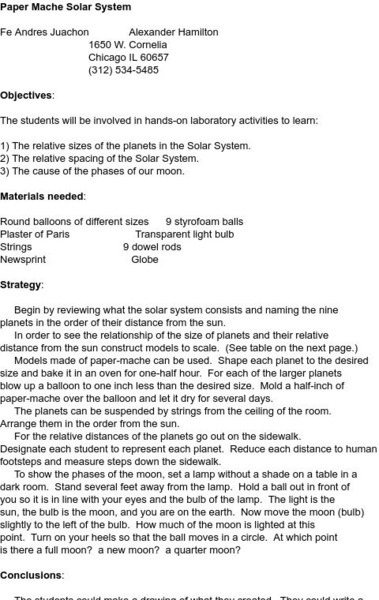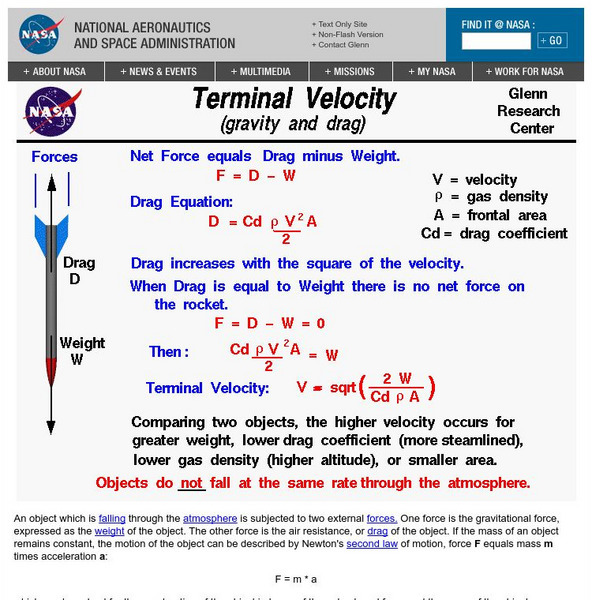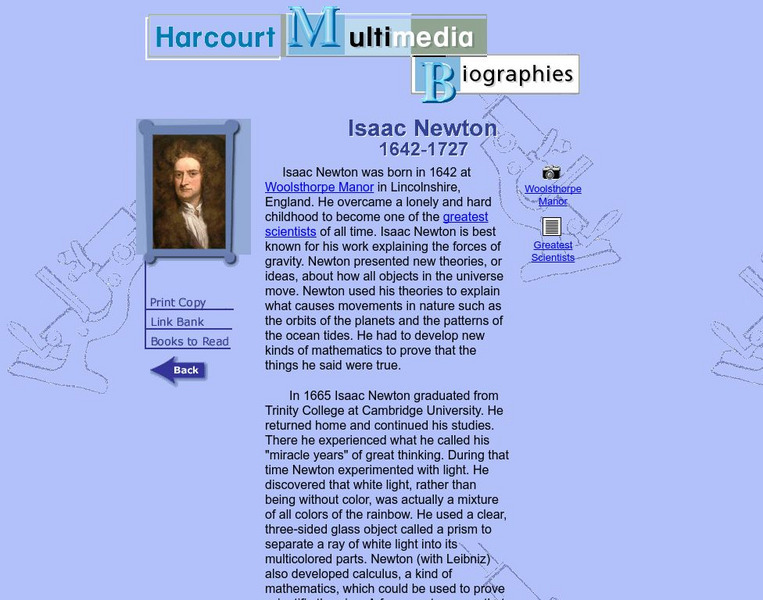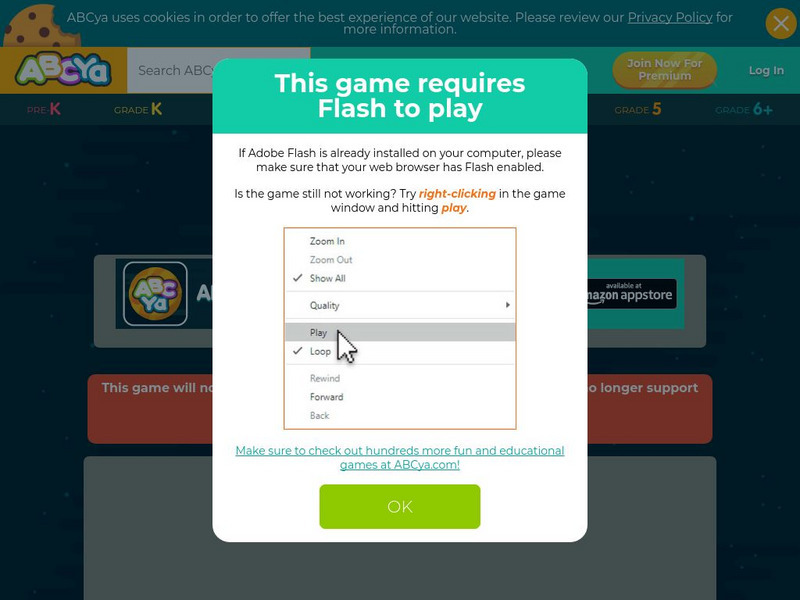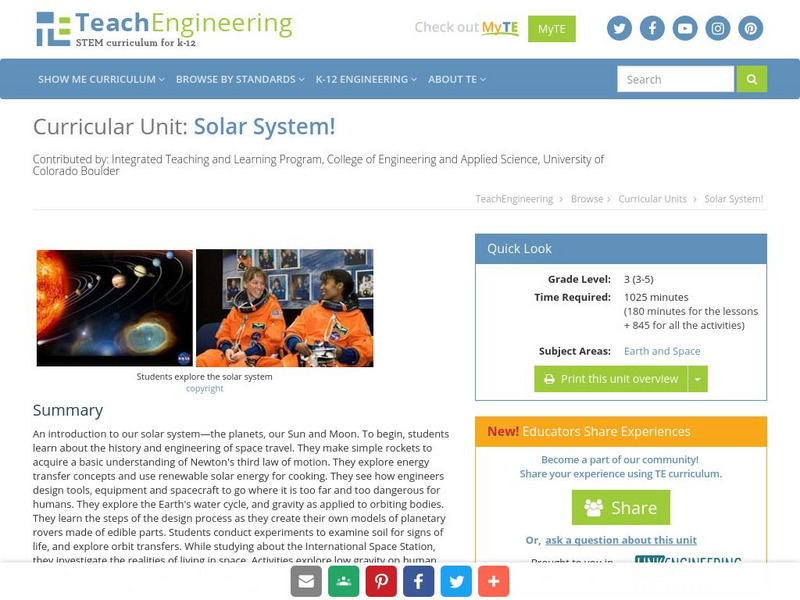Hi, what do you want to do?
TeachEngineering
Teach Engineering: Sliding Textbooks
In this culminating activity of the unit which highlights how forces play a role in engineering design and material choices, students explore and apply their knowledge of forces, friction, acceleration, and gravity in a two-part experiment.
Khan Academy
Khan Academy: What Is Weight?
This article on weight will help you prepare for the AP Physics test. Included are example problems to help you practice.
TeachEngineering
Teach Engineering: Mechanics Mania
Through ten lessons and numerous activities, students explore the natural universal rules engineers and physicists use to understand how things move and stay still. Together, these rules are called "mechanics." The study of mechanics is...
Georgia State University
Georgia State University: Hyper Physics: Circular Orbit
The necessity of gravitation to a circular orbit is discussed and equations for the orbital speed are derived from the law of universal gravitation. Binary systems in which two objects orbit about a center of mass are explained and...
Cosmo Learning
Cosmo Learning: Fundamentals of Physics
A collection of video lectures from a fundamentals of physics course taught at Yale University. The course is an introduction to physics and discusses Newtonian mechanics, special relativity, gravity, thermodynamics, and waves. Course...
Science and Mathematics Initiative for Learning Enhancement (SMILE)
Smile: Paper Mache Solar System
This site from the Illinois Institute of Technology provides a set of directions for the creation of a solar system model out of paper mache. Includes orbital distances and planet diameters for the nine planets. Great idea for a student...
NASA
Nasa: The Rocket Motor
An online version of a book pertaining to task of launching rockets into space and subsequently navigating them through space. The first several "chapters" (pages) describe the influence of gravity on Earth and the barriers which it...
NASA
Nasa: Beginner's Guide to Aerodynamics
This site from NASA uses a colorful graphic to illustrate why objects reach terminal velocity. Provides equation for the terminal velocity of an object. Graphic is accompanied by a simple explanation.
Exploratorium
Exploratorium: Your Age on Other Worlds
Enter your birthday and find out how old you are on the other planets in the Milky Way Galaxy. Understand why our age is different on each planet.
Georgia State University
Georgia State University: Hyper Physics: Gravitational Potential Energy
This site defines and explains the concept of gravitational potential energy. Uses many equations and graphics to illustrate the idea. Provides an online computational practice set with immediate feedback.
Khan Academy
Khan Academy: Isaac Newton
A biography of the scientist that developed the theory of gravity and founded the three basic laws of motion, Isaac Newton.
Other
Bscs: Forces and Motion Content Background Document
In this document, we will try to answer a fundamental question of physical science, "Why do things start to move, slow down, speed up, stop moving or change direction?" In answering these core questions we can develop concepts that can...
Houghton Mifflin Harcourt
Harcourt: Biographies: Isaac Newton
A brief biography on scientist Isaac Newton, highlighting his discoveries and the book he published in 1687, "Principia", which was on his theories of gravity and laws of motion.
Physics4kids
Physics 4 Kids: Work Quiz
Take this ten question multiple choice quiz on the physics of work.
Khan Academy
Khan Academy: Spring Forces
Creating a simulation of a bob hanging from a spring in a two-dimensional space that responds to other forces in the environment (wind, gravity, etc.)
ABCya
Ab Cya: Magic Pen: A Physics Based Game
A challenging game of physics for students to enjoy. Test gravity and patience by adding parts to the illustration to move a ball along to the flag.
Georgia State University
Georgia State University: Hyper Physics: Earth Orbit Velocity
A discussion and statement of an equation for orbital speed. An interactive JavaScript form allows the user to investigate the relationship between orbital height and orbital speed. A very good opportunity to practice and receive...
Science Education Resource Center at Carleton College
Serc: Newton's Second: Having a Ball With Motion
Students will create a gravity ball launcher to demonstrate their understanding of mass, force, momentum, and motion. The students will use critical thinking, measurement, and observation and analysis of data to make changes and improve...
Wikimedia
Wikipedia: Centripetal Force
Wikipedia's site on centripetal force provides a section explaining the difference between centripetal force and centrifugal force. Includes formulas and hyperlinked terms.
Physics Aviary
Physics Aviary: Practice Problems: Billy on Hill (Level 2)
Students must predict the distance traveled by a person on a sled. The person will start with potential energy due to gravity and then lose some energy on a hill. They will then lose the remaining energy on a level surface. You have to...
TeachEngineering
Teach Engineering: Solar System!
An introduction to our solar system: the planets, our Sun and our Moon. Students begin by learning the history and engineering of space travel. They make simple rockets to acquire a basic understanding Newton's third law of motion. They...
TeachEngineering
Teach Engineering: Dams
Through eight lessons, students are introduced to many facets of dams, including their basic components, the common types (all designed to resist strong forces), their primary benefits (electricity generation, water supply, flood...
TeachEngineering
Teach Engineering: Locks and Dams
Learners are introduced to the structure, function and purpose of locks and dams, which involves an introduction to Pascal's law, water pressure and gravity.
Ducksters
Ducksters: Biography for Kids: Scientist: Isaac Newton
Investigate Isaac Newton's biography on this site. Learn how he was a scientist who discovered gravity, the three laws of motion, and calculus. He is considered one of the great scientists in history.









